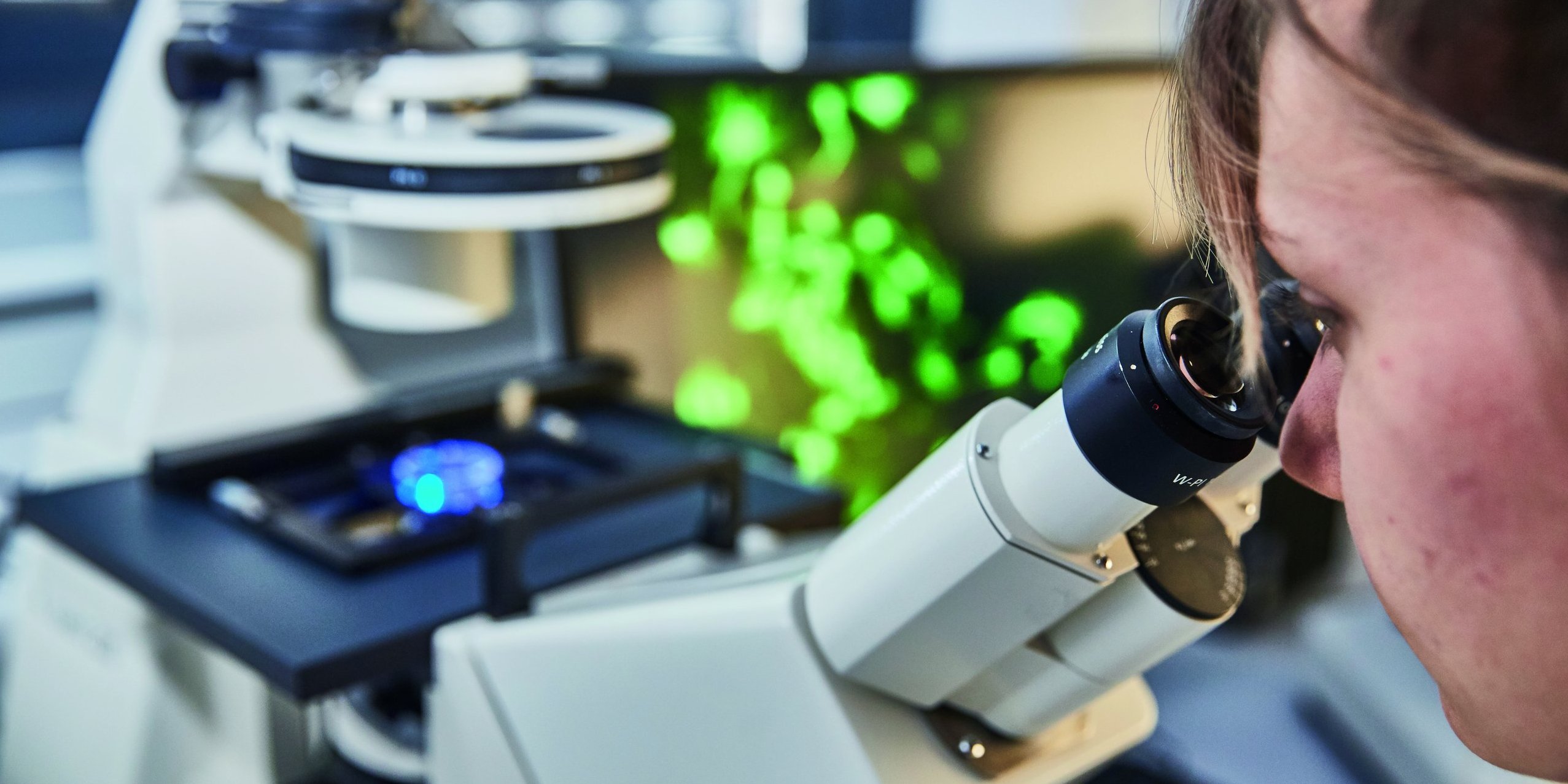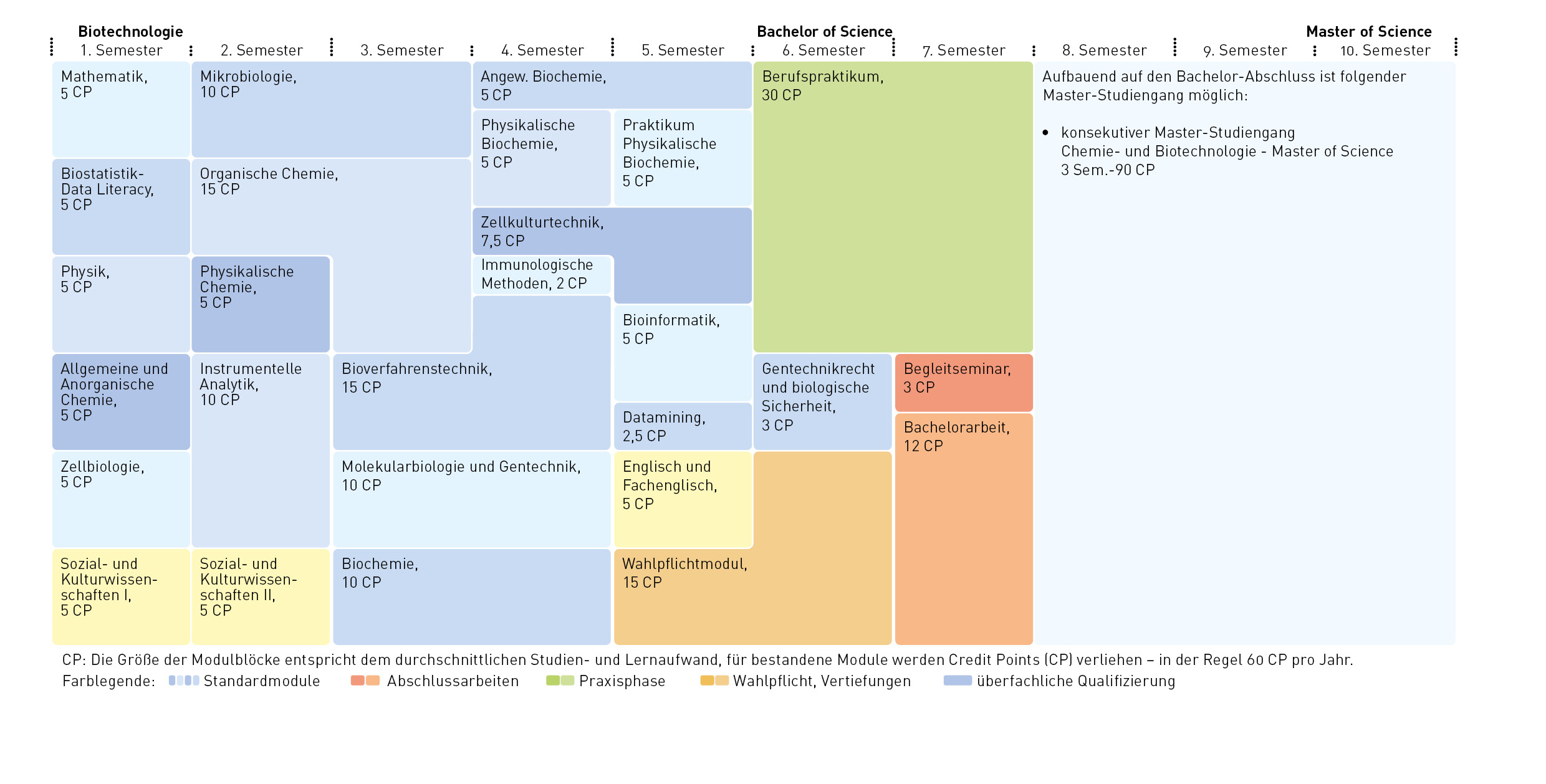
Biotechnology (Bachelor of Science)
| Semester | 7 Semester |
| Darmstadt | |
| Winter semester | |
| GER | |
| Without admission restriction. |
Content
How are enzymes derived from genetically modified organisms that improve detergents, thereby enabling washing cycles to be carried out at lower temperatures and with lower energy consumption? How do so-called bioreactors simplify the production of antibiotics and insulin? - Two questions from practical fields of application of biotechnology. In the biotechnology study programme leading to a Bachelor of Science (B.Sc.) degree, students in the Faculty of Chemistry and Biotechnology are first taught general basic engineering subjects such as mathematics and physics and the subject-specific fundamentals of biology, chemistry and bioprocess engineering in seven semesters. Later on, topics such as genetic engineering, cell cultivation or enzyme technology build on these. More detailed information on the degree programme can be found at website of the Faculty of Chemistry and Biotechnology.
Perspectives
Biotechnologists have a wide range of applications.
- Biotechnological companies
- Chemical and pharmaceutical industry
- Apparatus and plant engineering
- Environmental Technology
- Research in universities and companies.
Building on the Bachelor's degree, the following Master's programme is possible:
Structure
The modules of the Bachelor's programme impart qualifications and competences for these fields of activity. These study units may include seminars and lectures, project phases or experimental work. A detailed presentation of the course contents can be found in the module manual (German). The Bachelor's degree qualifies for a profession, but also enables the transition to Master's programmes. Admission to the Master's programme in Chemistry and Biotechnology is possible in both the winter and summer semesters.
Access
The degree programme Biotechnology (B.Sc.) is not admission restricted (no NC). These school-leaving qualifications, among others, are considered to be admission requirements:
- General matriculation standard (allgemeine Hochschulreife)
- Subject-related entrance qualification (fachgebundene Hochschulreife)
- Advanced entrance qualification for universities of applied sciences (Fachhochschulreife).
A detailed description of the admission requirements can be found in the Special Provisions of the Examination Regulations (German).
The application deadline has been extended. Please inform yourself under application deadlines.
Contact
Susanne Summa
+49.6151.533-68189
sekretariat.fbc@h-da.de
1
Consultation
Mo + Mi 08.00 - 12.00 Uhr und 13.00 - 15.00 Uhr via Telefon und E-Mail
Di - Do 08.00 - 12.00 Uhr und 13.00 - 15.00 Uhr
Fr 08.00 - 11.30 Uhr
